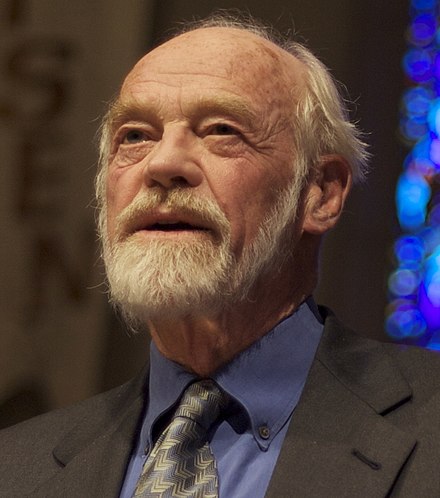I remember when I first learned, as a youngster, to drive a tractor in reverse. It took a while, but I finally figured it out. Ultimately, operating in reverse became second nature – on a tractor. Not so much with vehicles of speed. When watching action movies, I am always amazed at the speed with which the “Jack Ryans” are able to operate a vehicle in reverse. Ever try it? Don’t!
One of my favorite authors and the writer of the paraphrase, The Message, is the late Eugene Peterson. A life-long pastor, Peterson said he didn’t set out to write a paraphrase of the Bible. It came from naturally translating and interpreting scripture for his parishioners on a weekly basis. In his writings, Peterson had the ability to say things differently, causing the reader to pause and reflect. Several times in the Gospels of The Message, Peterson used the term Great Reversal. In all cases, the term is capitalized, which certainly causes one to pause and reflect…


The context for Peterson’s use of the term Great Reversal is related to the upside-downess of life in God’s governance – “the last in line put at the head of the line, and the so-called first ending up last.” Seen from this context, we discover that much of what Jesus said and did was indeed a Great Reversal. The first words attributed to Jesus in Mark’s Gospel are laced with reversal language: The time has come at last – the kingdom has arrived. Repent and believe the good news [gospel] (Mark 2:15). This might be one of those passages that we are over-familiar with and easily miss the intent. So let’s unpack it a bit, starting with the endpoint – the good news.
How was Jesus’ announcement of the arrival of the kingdom good news to the first-century listener? We see some of the answer in Jesus’ description of his mission in Luke 4 (see Mission Statements). He made it very clear that the kingdom was for everyone, a complete reversal of the accepted religious thought of the day. Outsiders now had access to the kingdom – the poor, the sick, the oppressed, their enemies – ciphers and non-entities in the first-century religious system and worldview.
What did Jesus mean when he said to repent and believe this good news? Repent is a word we can easily misunderstand as simply remorse. Though remorse is certainly part of the definition, it’s far more than that. The first-century listener would have understood repent as both a reversal of one’s thinking (change of mind) and a reversal of one’s direction. Twenty-first century understanding of repent stems from an individualist, Western worldview to which we have added Christian as an adjective. From that viewpoint, repent is understood as changing one’s mind about who Jesus is, changing direction, walking toward Him, and thus securing eternal life (usually understood as heaven). Though there is certainly truth to this, it is not what Jesus was proclaiming in the Gospel of Mark.
Jesus was proclaiming to the first-century religious crowd the need to rethink their worldview, which was an insider/outsider and a we/them political worldview. Their worldview pushed others to the back of the line. Jesus’ admonishment to repent also demanded a change of direction accompanying the change of mind, implying some type of action. In the context of Great Reversal, Jesus could have been saying something like, The time has come at last – the kingdom has arrived. Change your worldview. Go bring people up from the back of the line. That would be good news indeed.
How might this play out today? We need to recognize and admit that we have been shaped by an extremely individualistic version of Christianity. For the past half-century, the mantra of mainstream Western evangelicalism has been, “God loves me and has a wonderful plan for my life”– a non-biblical, self-focused, individualistic viewpoint. If we operate out of an individualistic worldview, would it not make sense that we would tend to move to the front of the line, pushing others further away from the kingdom? Might it also make sense that we might not even see the people at the back of the line, the marginalized, the non-entities, our enemies? Jesus would ask us to repent.
Does this stretch your thinking? If so, I might suggest reading through the gospels with the express intent of discovering how much of Jesus’ message and actions displayed a Great Reversal construct.* We might be surprised to discover its prevalence. It might make us rethink some things. We might find the need to repent and believe in this [newly found?] good news/gospel.
* ADDENDUM 1/31/2023: Annie F. Downs has created a podcast that will help the listener experience all four Gospels twelve times during the year 2023. It’s called Let’s Read the Gospels. Enjoy!

2 thoughts on “The Great Reversal”